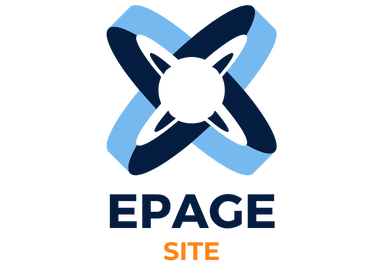How to utilize social media analytics for improving marketing strategies in UK’s hospitality industry?

In the rapidly evolving digital landscape, the role of social media in the hospitality industry cannot be overstated. As we traverse the midway mark of 2024, hotels and other hospitality businesses in the UK must adeptly harness social media analytics to refine their marketing strategies. The ever-increasing reliance on digital marketing and social media platforms presents a golden opportunity to engage with potential guests and enhance brand visibility. This article dives deep into how you can leverage social media analytics to boost your marketing efforts, ensuring a more targeted approach and a greater return on investment.
Understanding Social Media Analytics
To start, it's essential to grasp the concept of social media analytics. This arena involves collecting and interpreting data from social media platforms to guide your marketing strategy. This data-driven approach helps you understand what content resonates with your audience, which platforms yield the best engagement, and how your brand is perceived in the digital space.
Lire également : What are the most effective strategies for integrating AI in UK’s patient care management?
Social media analytics offer insights into a variety of metrics, including impressions, engagement rates, shares, and comments. These metrics provide a clearer picture of your target audience’s preferences and behaviors, allowing you to tailor your content and engagement strategies accordingly. By understanding how your audience interacts with your brand on social media, you can make informed decisions that enhance your overall marketing strategy.
For instance, if your audience engages more with visual content, you might focus on platforms like Instagram or Pinterest. Conversely, if discussions and reviews are more prevalent, Facebook and Twitter might be your go-to platforms. Utilizing these analytics empowers you to distribute your marketing efforts effectively across various social media platforms, maximizing your reach and impact.
A découvrir également : What detailed steps can improve cybersecurity for UK's telehealth services?
Crafting a Tailored Marketing Strategy
With social media analytics at your disposal, crafting a marketing strategy that speaks directly to your audience becomes more attainable. The hospitality industry, particularly hotels, can substantially benefit from a more personalized approach to marketing. By analyzing the data, you can identify trends and preferences that guide the creation of content that appeals to your potential guests.
Consider running campaigns that align with your audience’s interests. For instance, if your analytics indicate a rising interest in eco-friendly travel, highlighting your hotel's sustainable practices can attract eco-conscious travelers. Additionally, you can tailor your offers and promotions to fit the interests and behaviors revealed by your analytics. This personalized touch not only captures the attention of potential guests but also fosters loyalty among existing customers.
Email marketing remains a vital component of a comprehensive marketing strategy. By leveraging insights from social media analytics, you can segment your email list based on your audience’s interests and behaviors. Crafting targeted email campaigns ensures that your messages are relevant and engaging, increasing the likelihood of conversion and repeat business.
Enhancing Customer Engagement
Social media platforms are invaluable for fostering direct communication with your guests and potential customers. Utilizing social media analytics, you can pinpoint the best times to post, the types of content that generate the most interaction, and the platforms where your audience is most active. Engaging with your audience at the right time and place is crucial for building a strong online presence.
Engagement goes beyond simply responding to comments and messages. It involves creating content that encourages interaction. Interactive content, such as polls, quizzes, and live Q&A sessions, can significantly increase engagement rates. For example, hosting a live Q&A session about upcoming events in your hotel or the latest travel trends can attract a larger audience and generate meaningful interactions.
Influencer marketing is another potent tool in the hospitality industry. By collaborating with influencers who resonate with your target audience, you can amplify your reach and credibility. Social media analytics can help identify influencers whose followers align with your target demographic, ensuring a more impactful partnership.
Optimizing Content Marketing Efforts
Content marketing is the backbone of a robust digital marketing strategy. Social media analytics provide the insights needed to create content that not only attracts but also retains your audience’s interest. By analyzing which posts perform best, you can identify themes and topics that resonate with your audience.
For hotels in the UK, showcasing local events, attractions, and unique experiences can be particularly effective. For instance, if you are promoting a "Submit Event" in July in London, your content should highlight what makes this event special and why your hotel is the perfect place to stay. High-quality visuals, engaging storytelling, and timely information can make your content stand out in a crowded digital landscape.
Video content continues to rise in popularity. Using social media analytics, you can determine the optimal length, style, and subjects for your videos. Whether it’s a virtual tour of your property, a behind-the-scenes look at your services, or testimonials from happy guests, videos can significantly boost engagement and conversions.
Monitoring and Adjusting Your Strategy
The digital marketing landscape is ever-changing, and what works today might not be as effective tomorrow. Continuous monitoring and adjustment of your marketing strategy are crucial for staying ahead of the competition. Social media analytics offer real-time data, allowing you to make swift adjustments based on the latest trends and audience behaviors.
Regularly reviewing your analytics helps you identify which strategies are working and which need rethinking. For instance, if you notice a decline in engagement on a particular platform, it might be time to either revamp your content or shift your focus to a different platform. Similarly, if a certain type of post consistently performs well, you should consider incorporating more of that content into your strategy.
Revenue management is also a key consideration. By analyzing which promotions and campaigns drive the most bookings, you can optimize your pricing strategies to maximize revenue. Whether it’s offering last-minute deals, early-bird discounts, or special packages, aligning your promotions with the insights from your analytics can lead to a significant boost in bookings and revenue.
Utilizing social media analytics is a game-changer for improving marketing strategies in the UK's hospitality industry. By understanding your audience's preferences and behaviors, crafting tailored marketing campaigns, enhancing customer engagement, optimizing content marketing efforts, and continually monitoring and adjusting your strategies, you can significantly elevate your brand's presence and effectiveness in the digital space.
In a world where digital marketing and social media platforms dominate the landscape, leveraging the power of social media analytics is not just beneficial; it is essential for staying competitive. By implementing these strategies, you can ensure that your marketing efforts are not only more efficient but also more impactful, leading to greater customer satisfaction and increased bookings, ultimately boosting your hotel's success in the hospitality industry.
